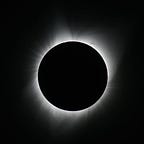Deism: Traditional & Contemporary
Belief in God based on reason rather than revelation or the teaching of any specific religion is known as deism.
Deism is the belief in the existence of a Creator God who does not interfere in the universe, especially in human life. Deists skillfully try to separate God from religion. When it comes to religion, they look and sound like atheists. They reject religious revelation and often refer to religion as “superstition”. But they cling to God.
Deism seems to have what I call a “hard” or skeptical version and a “soft” version. The skeptical version is highly critical of religion, but wants to defend the idea of God and free itself from religious insignia such as scriptures and rituals. Developed by writers such as Thomas Paine (1737–1809) and Voltaire (1694–1778). Soft deism, by contrast, is largely uncritical of orthodox religion. This is an early form of deism that first appeared in the 17th century in the works of John Toland (1670–1722) and Matthew Tyndale (1657–1733). It can also be called “Christian deism”. The general idea was that Christianity had a core that could be defended entirely by reason, and that was all a Christian needed. This was, in part, a way to break through the cumbersome doctrinal controversies that had dominated the Reformation and Protestant formulations for the past 200 years.
